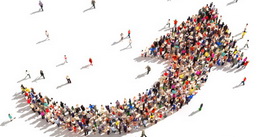1. September 2006 - Reuters
Catholic Bavaria gears up for Pope's homecoming
MARKTL, Germany (Reuters) - Papal pastries and marzipan mitres fill the bakery window, crates of Pope beer arrive at the inn and the historic baptismal font is back in the church after years in the priest's back garden.
As Bavaria, Germany's Catholic heartland, works itself into a frenzy over next week's visit by Pope Benedict XVI, nowhere is the sense of expectation greater than in his birthplace in the far south-east of the country, near the Austrian border.
"This is a huge honour, we are proud he is making a point of coming here," said Marktl mayor Hubert Gschwendtner in his office overlooking the chalet-like house with wooden shutters and window boxes in which Joseph Ratzinger was born.
"I think the pope will come out of himself and show a more relaxed, human side because he will feel at home."
Unperturbed that the 79-year-old pontiff has just 15 minutes scheduled in Marktl and that he spent only the first two years of his life here, the villagers are leaving nothing to chance.
While locals run up ladders to adjust the lights in the whitewashed church where the pope was baptised, cleaners scrub the gleaming altar and painters put final touches to his house.
The carved stone font has been moved back to the church from the town museum where it has been since 1990 after 25 years of neglect in the local priest's garden. Up the road, baker Rosswitha Leukert is cooking a life-size marzipan mitre.
Villagers hope an expected flood of tourists will splash out on memorabilia -- mugs, candles, pictures and food.
"Pope beer (Papstbier) and honey sell best because they are cheapest," said shop owner Eva Schreiber, 68, noting that many visitors are nuns and priests, with modest means.
The pope says he wants to visit his home, with its 2,700 inhabitants, and the people who shaped his life on his 5-day trip to Bavaria, best known for its beer, wurst and lederhosen.
He will go to Munich and Regensburg, where his brother Georg was cathedral music director, as well as to Martkl.
BAVARIAN CATHOLICISM
With its onion-domed churches at the heart of every village, crosses and statues along country paths and saints' portraits on the sides of houses, Bavaria is Germany's most Catholic state.
"There is no doubt that in Bavaria, especially in rural areas, there are still deep-rooted traditions which have been moulded by faith," Cardinal Karl Lehmann, Germany's top Cardinal told Radio Vatican.
A few kilometres from Marktl is one of Germany's holiest sights -- the statue of the Black Madonna of Altoetting.
Legend has it that a three-year-old girl was brought back to life after drowning when her mother put her before the wooden Madonna in 1489.
The pope will kneel before the 70 centimetre-tall statue which dates back to the early 14th century and draws hundreds of thousands of pilgrims every year.
Wooden votive tablets, some centuries old, adorn the chapel's exterior. More recent messages are on paper -- one gives thanks for a new car, another for passing exams.
Even the beer has religious roots. Many of Bavaria's 623 breweries originated in monasteries which made beer to nourish both monks and pilgrims. Some, such as Augustiner Braeu and Franziskaner Weissbier, still bear the names of monastic orders.
But Catholicism is on the wane, even in the Pope's hometown.
"The children are not interested in coming to church now," said Anni Hauer, a church official at Marktl's St Oswald's.
Germany's 26 million Catholics, roughly equal in number to its Protestants, attend church less and there are fewer priests.
Liberals do not see a saviour in the pope, who was known as "God's Rottweiler" when he was the Vatican's doctrinal watchdog.
They say the church's hierarchy, which discriminates against women, and its rigid sexual morals put people off.
"I'm sceptical about the visit. He'll arrive in a media whirl and go with little changed," said Christian Weisner of Wir sind Kirche, Germany's biggest liberal Catholic group.
Zuletzt geändert am 09.09.2006



 Wir sind Kirche-Advents-Kalender 2025
Wir sind Kirche-Advents-Kalender 2025